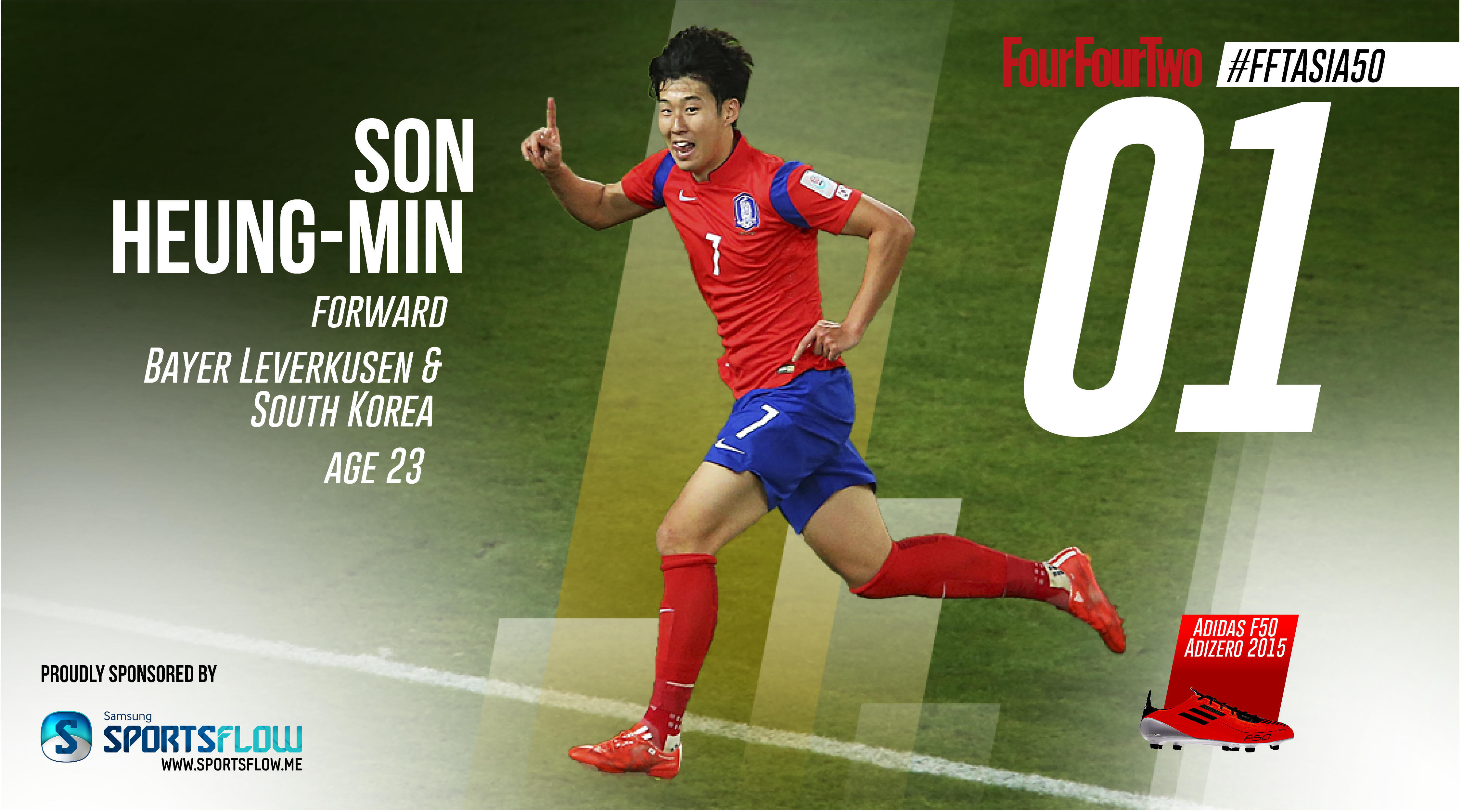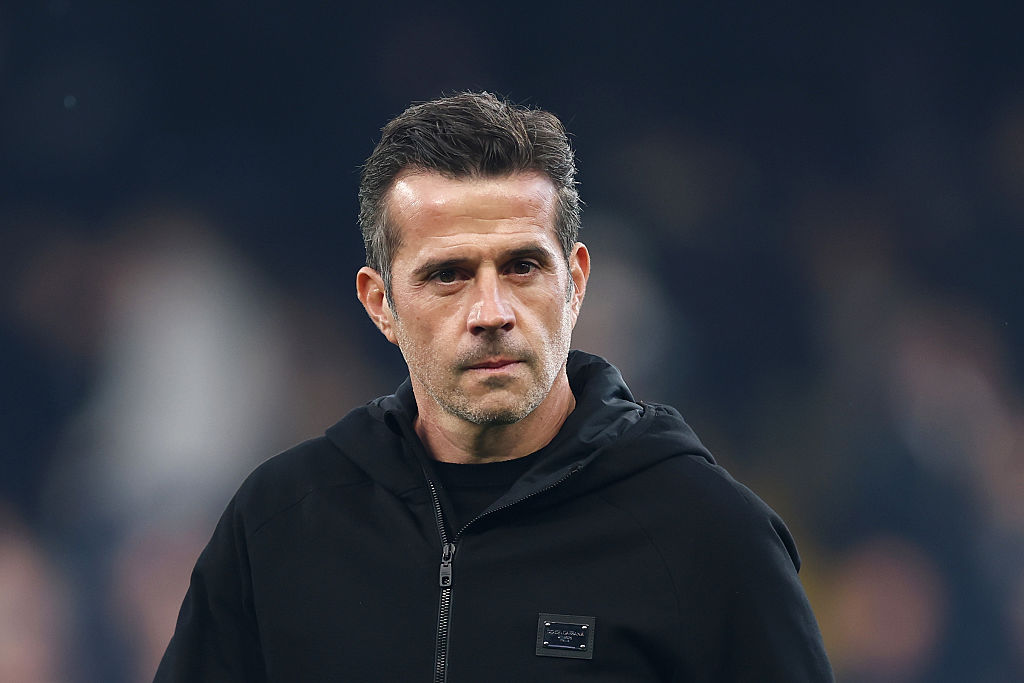
Almost one-fifth of the players who made FourFourTwo's list of best Asian footballers ply their trade in the German Bundesliga. This is no coincidence — for many Asian players hoping to make it in Europe, Germany has become the preferred destination during the last decade.
For some, such as Shinji Kagawa, the league is a convenient gateway to reach the promised land, England's Premier League. For others, such as Kagawa once again, it has since turned out to be a genuine home away from home.
How did this happen? Why the Bundesliga? It's tempting to argue that history plays an important role. The ties between German and Asian football reach back very far. The legendary coach Dettmar Cramer, who would later win the European Cup with Bayern Munich, came to Japan as early as 1960 to prepare the national team for the 1964 Olympics in Tokyo, which is why he's known as "the father of Japanese football" in some quarters. In the following decade, another famous German coach — Cologne's Hennes Weisweiler — spotted Yasuhiko Okudera and signed him to his club. In October 1977, Okudera became the first Japanese footballer to play professionally in Europe.
Putting it kindly, his start was unpromising. In the first minute of his first game and with his first attempt at making contact with the ball, Okudera brought down an opponent in his own penalty area and the referee pointed to the penalty spot. However, all's well that ends well. Cologne's goalkeeper Harald Schumacher saved the penalty and Okudera's team went on to win the game — plus the league and cup double.

Only a few weeks after Okudera made his debut, another Asian success story in Germany got off the ground when Bum-Kun Cha played his first game for Eintracht Frankfurt. The man who would one day be crowned Asia's Footballer of the Century became such an instant hit that the German writer Eckhard Henscheid composed a 130-line ode called "Hymn to Bum-Kun Cha".
So the Bundesliga was the stage for the first Japanese and the first South Korean professional in Europe. It also played an important role for the Chinese game. When Yang Chen joined Waldhof Mannheim, then in the third division, on a very brief loan spell in 1998, he was not the first Chinese footballer in Europe (Cheung Chi Doy had played for Blackpool in the early 1960s) but he became an important trailblazer — he was voted Chinese Footballer of the Year in 2000, while playing for Frankfurt in the top flight.
The reason why Yang Chen started his German career in Mannheim of all places leads us back to those far-travelled German coaches. Mannheim's famous manager Klaus Schlappner coached the Chinese national team from 1992 to 1995 and was so popular that he marketed his own brand of beer before alerting German football to Yang Chen's qualities.
The best features, fun and footballing quizzes, straight to your inbox every week.
However, there is no direct line from all those pioneers to the current avalanche of Asian players in the Bundesliga. It's not as if their success convinced clubs to signs players from Asia in larger numbers. Instead, the route from Okudera to Okazaki took a slight detour via Dortmund.

"I have always had a soft spot for Japan and especially the city of Tokyo," said Thomas Kroth. "Maybe it's because I played together with Okudera when I was at Cologne — and also with Pierre Littbarski, who later coached in Japan."
Kroth, now 55 years old, finished his career with Borussia Dortmund in 1990, which is why the company he runs resides in Dortmund. This company represents several well-known German players, such as Manuel Neuer. But most people in the business know Kroth as the man who brings Asian players to Germany.
"Because I liked the country, I went to Japan maybe once or twice a year and began to notice players," Kroth said. "I then tried to find them teams in Europe." He now represents roughly two dozen Asian footballers, among them Okazaki and Kagawa. However, it's not as if everyone Kroth approached immediately remembered Okudera and Cha and figured that Asian players and the Bundesliga were a good match. Quite the contrary.
"At first it was difficult, because the European clubs weren't very keen on Asian players," said Kroth. "Many of them said: ‘well, how is a Japanese player going to help us?’ At the time, the national team was placed fairly low in the FIFA rankings and the clubs didn't know very much about the Asian market." Kroth now also works for South Korean players, but he started out with Japanese footballers because that was the territory he knew.

Reluctance, he soon learned, was not restricted to the clubs. "It was also the case that the Japanese players were preferring a move to the English Premier League rather than the Bundesliga," Kroth said. "To some degree, this is still the case, but it was much more pronounced when I started out. A good deal of my job back then was to get the Asian players interested in the Bundesliga. They were cautious because they just didn't know anything about this league."
This is a sentiment echoed by Bum Kun-Cha. "The success of the German clubs in the Champions League and the performance of the national team have impressed many people in Asia," he told the official Bundesliga website last year. "Until recently, the Premier League was the most attractive goal for Korean players. But the Bundesliga has gained ground. The style suits Asian players. More Asian players will come to the Bundesliga because they notice that the Japanese and Koreans can hold their own in the top teams."
Maybe it helps, as Cha hints, that Bundesliga football is not quite as physical as the English game, which makes it easier for technically gifted players to adapt quickly. But it's also true that, as he states, you need role models. Somebody has to prove it can be done, then others will follow.
"It all changed with the players of Japan's so-called Golden Generation," said Thomas Kroth. "Players like Junichi Inamoto, Naohiro Takahara or Shinji Ono, all of whom I represented. My first transfer was Takahara to Hamburg in 2003. But the key deal for me was Makoto Hasebe to Wolfsburg in 2008, because he immediately went on to win the league."

It set in motion a chain of events that now feeds off itself. When the Asian players began to do well, the German clubs looked for more footballers like them. In the old days, it would have been difficult to scout on a larger basis in Asia, but now — with multi-national agents like Kroth — it has become a lot easier.
This in turn made the fans in Asia more interested in the Bundesliga. During the days of Okudera and Cha, coverage was restricted to a few television reports, but now — with football being a global business and the internet sending footage into the remotest corner of the planet — people can watch the games and read about the clubs. That makes the Bundesliga more attractive for talented players than was the case when Kroth started out.
Which means that Cha is very probably right: Even more Asian players will come to the Bundesliga during the next years. And even more Bundesliga clubs will become interested in the Asian market. Last October, Borussia Dortmund opened their first representative office outside Germany – in Singapore.
The FourFourTwo Asia50 is in association with Samsung SportsFlow – bringing you the most comprehensive sports coverage in one place via a single app. Find out more and download at www.sportsflow.me
 Join The Club
Join The Club





